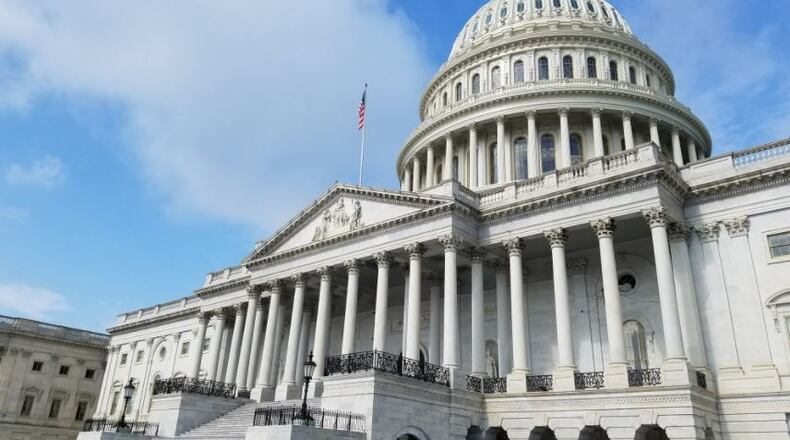Here's an update on where the Trump-GOP agenda stands on Capitol Hill:
1. Senate GOP talks continue on health care. As in the House, the work on a bill to overhaul the Obama health law is taking place in the Senate mainly behind closed doors. More than a month after the House passed a health bill, that measure was finally sent to the Senate this past week, after the Senate Parliamentarian decided that it had no fatal rules violations under the expedited procedures known as "budget reconciliation." Democrats, who are on the outside looking in, are trying to put some heat on the GOP for developing a revised Senate version in private. Sen. Clare McCaskill (D-MO) led that charge in recent days.
2. Some conservatives remain unhappy with the work. Because budget reconciliation places constraints on what Republicans do to change the Obama health law, there are some in the GOP were continue to grumble that is not going to be 'repeal and replace.' For now, no GOP Senator has said they will refuse to get on board with the Republican plan, but there are outside conservative groups who continue to make it known that they don't like what's happening. It's still not clear when there will be a final Republican bill unveiled and/or when there will be a vote in the Senate.
3. House approves big rollback in 2010 Wall Street reforms. Overshadowed by the tumult over James Comey's testimony in the Senate, the House quietly on Thursday approved a sweeping bill that rolls back a big chunk of the financial reforms undertaken by Democrats after the 2008 Wall Street collapse. While it was certainly a big success for Republicans, the GOP plan could well be dead on arrival in the Senate, where the GOP will need 60 votes. Democrats had 60 votes when they approved the Dodd-Frank law back in 2010, avoiding any filibuster.
4. Infrastructure week doesn't mean infrastructure details. This past week, the White House spent several days focusing on President Trump's plans to spur new construction of roads, bridges and other infrastructure. On Friday morning, Mr. Trump vowed to cut all sorts of red tape that goes along with new projects - that's something the Executive Branch can do, without Congress. As for how much money the President would spend - and where it comes from - there is still no Trump Infrastructure bill, and the White House says don't expect on until after Labor Day - and it's not clear if it can get through the Congress, as there are some Republicans wary of such plans, worried they sound like an Obama stimulus law.
5. Tax bill details also on hold until fall. If you are hoping to find out what the White House wants to do with the intricate details of re-writing the tax code, officials made clear that won't happen until after Labor Day as well. One other question that wasn't really answered in recent days was whether this measure would evolve from tax reform to tax cuts - as the Trump Administration still hasn't given a hard answer on whether the plan will be revenue neutral, or raise the deficit by emphasizing tax cuts that are not offset elsewhere in the budget.
Congress works the next three weeks in June, and then takes a week off for the July Fourth break.
About the Author
